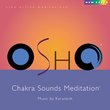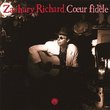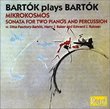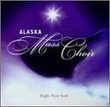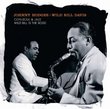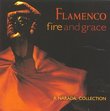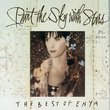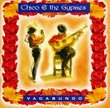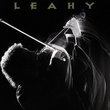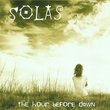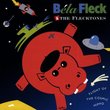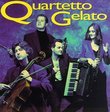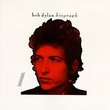| All Artists: Various Artists Title: Don't Mourn - Organize!: Songs Of Labor Songwriter Joe Hill Members Wishing: 2 Total Copies: 0 Label: Smithsonian Folkways Release Date: 7/13/1992 Genres: Country, Alternative Rock, Blues, Folk, Pop, R&B Styles: Bluegrass, New Wave & Post-Punk, Traditional Blues, Traditional Folk, Singer-Songwriters, Soul Number of Discs: 1 SwapaCD Credits: 1 UPCs: 093074002629, 093074002643 |
Search - Various Artists :: Don't Mourn - Organize!: Songs Of Labor Songwriter Joe Hill
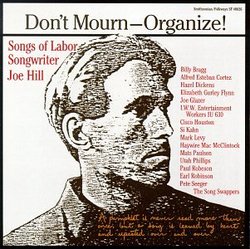 | Various Artists Don't Mourn - Organize!: Songs Of Labor Songwriter Joe Hill Genres: Country, Alternative Rock, Blues, Folk, Pop, R&B
Joe Hill's powerful songs moved Woody Guthrie, Pete Seeger, Utah Phillips, Si Kahn, and countless others to blend politics and song. This dramatic tribute to the Industrial Workers of the World songwriter and activist Joe ... more » |
Larger Image |
CD DetailsSynopsis
Album Description Joe Hill's powerful songs moved Woody Guthrie, Pete Seeger, Utah Phillips, Si Kahn, and countless others to blend politics and song. This dramatic tribute to the Industrial Workers of the World songwriter and activist Joe Hill, features songs by and about Hill performed by Billy Bragg, Hazel Dickens, Earl Robinson, Paul Robeson, and others. Compiled by Lori Elaine Taylor. "A treasure for anyone interested in American folk or labor music." -- Washington Post Similar CDs
Similarly Requested CDs
|
CD ReviewsIncredible! Debbie Byrd | MS | 12/20/1999 (5 out of 5 stars) "I felt like I was hearing the history my teachers hadn't told me about. I love the mix of voices and viewpoints. I'd be hard pressed to pick out a favorite, although Utah Phillips comes close. This album made me a Paul Robeson fan. I listen to it whenever I want/need to rev up my engines to fight for justice." I Had Hoped for Better Elderbear | Loma Linda, Aztlan | 06/21/2002 (3 out of 5 stars) "The story of Joe Hill, executed in Utah on trumped up charges, demands to be told, over and over again. Joe was executed by firing squad in spite of massive national and international protests and an appeal by President Wilson. Joe Hill died because his music and his labor organizing threatened to unravel the threads of society that gave a privileged few access to health, leisure, and comfort, while the masses toiled 60 and 70 hours per week, with no benefits or protections (like the workers who produce all that "made in China" stuff we buy!). Although Joe's story may be nearly 100 years old, with activists like Mumia Abu Jamal sitting on death row--we must remember.While this CD contains some important music, I really wish I'd gone out and spent the cash to purchase the recordings by the individual artists. I enjoy listening to my Utah Phillips and Pete Seeger CDs more--and each one has a more internally consistent feel than this one.But, if you're a labor history or folk music buf, purchasing this CD is a no brainer. Do it. Otherwise, spend some time listening to Utah Phillips, Pete Seeger, Billy Bragg, and the other musicians represented here on their own recordings. You'll have a much richer experience.(If you'd like to discuss this review or CD in more depth, please click on the "about me" link above and drop me an email. Thanks!)" More Punk than the Sex Pistols M. Dalton | New Orleans, Louisiana United States | 04/01/2004 (5 out of 5 stars) "Though it's true that the consistency on this album is varied, the good stuff is truly good. So good that the CD gets 5 stars just because this material is on there, and it's like nothing you ever heard before. Real 1920's PUNK ROCK!!!You can hear the incredible insolence of Joe Hill's lyrics, especially as sung by one of the old time Wob's who knew him. Some of this stuff is so subversive it makes Jello Biafra look like a yuppie, and it makes Maralyn Manson look like the poser he is. This is REAL subversion, from real people, native Americans and immigrants like Joe, who weren't playing games or striking poses, but really saw things as they are and really wanted to change the world. Though some of these songs are hippy tunes from the 60's, there is nothing hippyish about Joe Hill. Your boy is a hard core working class true American hero, every bit as tough and no nonsense as any hard-bitten coal miner or any other blue collar American of today, except, unlike so many of todays "Reagan Democrats", this guy had his eyes wide open. Thats why they shot him, of course.I just wish the Dropkick Murphy's would cover some of these."
|

 Track Listings (15) - Disc #1
Track Listings (15) - Disc #1